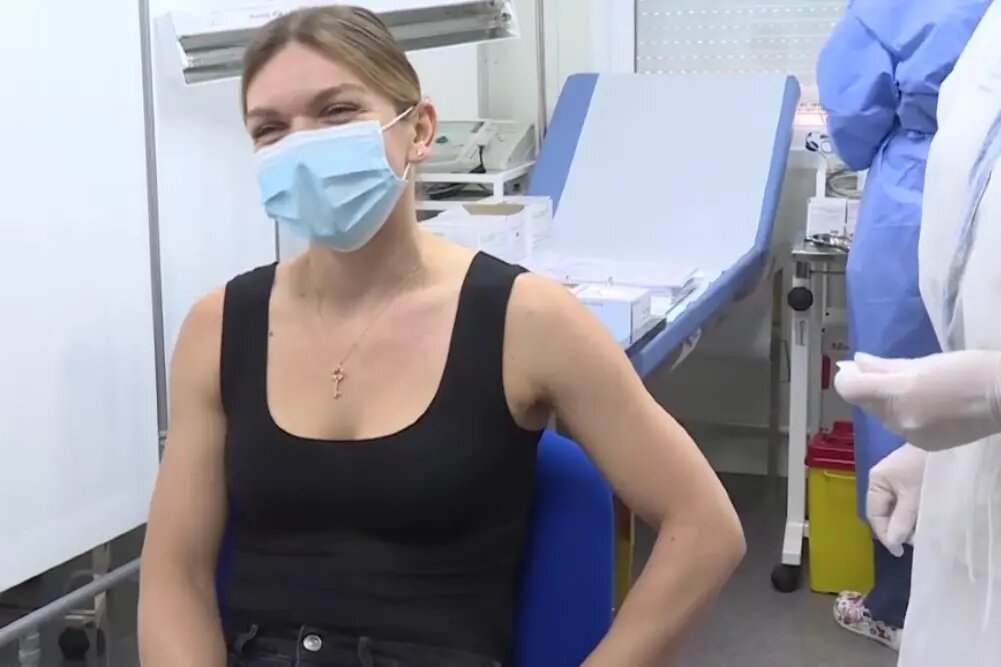It appears that enthusiasm for receiving the COVID-19 vaccination in the world of tennis is lukewarm after a series of players spoke cautiously about the idea of receiving one at the Miami Open.
Last year, both the ATP and WTA Tour’s were suspended for months due to the pandemic and tournaments continue to deal with the repercussions of it. Ranging from a sharp decline in prize money to strict protocols in force to help minimise the risk of an outbreak. At the Miami Open players have been placed inside a bubble which they are prohibited to leave, as well as regular testing.
Although there are no plans to vaccinate players on the Tour yet due to the global demand with each country having their own approach. For example, in Europe Great Britain has issued more than 30 million vaccinations which is three times more than France. However, should a situation occur when players can receive vaccinations, not everybody will be in favour.
“I know for the moment now it doesn’t really give you any privilege. You still have to be in the bubble,” Andrey Rublev said following his win over Marton Fucsovics at the Miami Open.
“If you ask me if I can choose and I can have the option to not have a vaccine, I will not do it.’
“There is no reason (for me not having it). Just my feelings because I have never had any vaccine since I was a kid.”
Rublev, who won more matches on the Tour than any other player except Novak Djokovic in 2020, isn’t the only player to have his doubts. Elina Svitolina is another who is sticking to the cautious side of things. The Ukrainian says she wants to wait a bit longer before having a vaccine after speaking with her friends about potential side effects. Like Rublev, she also questions if such an approach would benefit her in the sport.
“It will not really help you in many ways because you have to quarantine anyway,” she said. “The ATP and WTA, they oblige you to quarantine anyway, like 24 hours as soon as you get it.’
“Okay, you will reduce your symptoms if you get it, but still, there is a chance that you can get it. So for now it makes almost no sense to do something that has been tested for such a short period of time. For me, I will probably wait for now.”
Aryna Sabalenka says she doesn’t want her family to be vaccinated yet due to how rapidly it was produced and the impact it could have on the body. All vaccinations that have been made have been subjected to strict testing by health regulators before being given out to the public. Subsequent medical trials have also confirmed the safety of the vaccines. Although its effectiveness differs depending on the manufacturers.
“So far I don’t really trust it. It’s tough to say, but I don’t really want mine yet, actually, and I don’t want my family have it,” said Sabalenka. “I will think about this. I mean, if I will have to do it, then of course I have to do it, because our life is a travel life and I think we are the ones who actually should make it. But I will see.”
It is important to take into account the players’ country of origin with studies previously highlighting that people living in eastern Europe are less likely to be in favour of having a COVID-19 vaccination. Earlier this month an Ipsos survey conducted in partnership with the World Economic Forum found that only 42% of Russian’s were intent on getting a vaccination.
At the other end of the spectrum, other players are in favour of being vaccinated and some already have done. Including Simona Halep who contracted the virus last year.
“I’m planning on getting one,” Naomi Osaka states. “For me, I feel like whenever I’m eligible, I guess.”
Argentina’s Diego Schwartzman is another who is happy to receive an injection but only after those more in need have theirs first.
“I am going to get vaccinated when my turn comes that I would not get the vaccine before my family and the people who really need it,” he wrote on Twitter.
The New York Times’ Covid-19 vaccine tracker estimates that 552 million doses have been issued worldwide as of March 29th.






